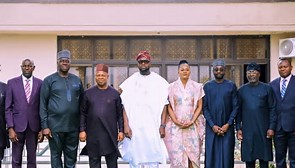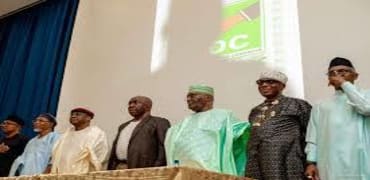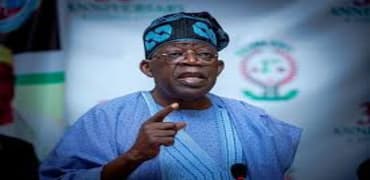Federal Government Inaugurates Presidential Committee to Accelerate Nigeria’s Digital Infrastructure
Federal Government Inaugurates Presidential Committee to Accelerate Nigeria’s Digital Infrastructure
By Achimi muktar
In a bold stride towards reshaping Nigeria’s digital destiny, President Bola Tinubu has greenlit the establishment of a high-powered Presidential Committee on Digital Public Infrastructure (DPI), a move set to revolutionize the way Nigerians interact with government services and the digital economy.
Unveiled as part of a sweeping national agenda, the committee is expected to spearhead the rollout of a unified digital framework encompassing everything from digital identity systems to financial payment structures and secure data-sharing channels—ushering in a new era of seamless digital governance and service delivery.
The formation of the committee was jointly championed by the Office of the Secretary to the Government of the Federation (OSGF) and the National Identity Management Commission (NIMC), signaling a collaborative and strategic approach to the country’s digital transformation.
Representing the SGF at the inauguration, Minister of Communications, Innovation, and Digital Economy, Dr. Bosun Tijani, underscored the critical need for robust digital infrastructure that links identity verification, financial access, and data exchange.
“Robust systems for identity verification and financial services are essential to enabling secure transactions, fostering financial inclusion, and unlocking new economic opportunities,” Tijani stated.
He emphasized that central to Nigeria’s development goals is data—the lifeblood of innovation, governance, and inclusion in the global digital economy. With a unified infrastructure in place, public services will be smarter, faster, and more responsive.
Also weighing in was Kashifu Inuwa, Director General of the National Information Technology Development Agency (NITDA), who made a powerful case for private sector collaboration. He advocated a Digital Public Trust model, calling for a digital ecosystem grounded in transparency, security, and shared responsibility.
“This is not the industrial revolution of yesterday. Data is now the new oil—and our infrastructure must be built around it,” said Inuwa.
He stressed that government cannot build this future alone and urged tech leaders, innovators, and digital entrepreneurs to seize the opportunity to co-create Nigeria’s digital foundation.
The newly formed committee isn’t just symbolic—it will serve as a national digital control tower, aligning efforts across ministries, departments, and private players. Its goal? To eliminate duplication, ensure system interoperability, and create a citizen-centric digital experience that matches global standards.
Earlier in April, NITDA released a draft of Nigeria’s Technical Standards for DPI, inviting public feedback—a clear indication that the government wants inclusive input for this digital revolution. It also marked a major milestone in the push to build a secure, interoperable, and future-ready digital framework.
One of the centerpiece innovations is the launch of the Nigerian Digital Public Infrastructure Centre (Ng-DPIC)—the engine room that will drive the education, research, and implementation needed to power this transformation.
With the DPI committee now active, Nigeria is taking its most significant step yet toward building a digital society where citizens can securely access services, businesses can scale digitally, and the nation can compete on a global tech stage.
For a country often lagging in digital integration, this might just be the tipping point. The real question is—will Nigeria seize this moment, or let it pass?


















